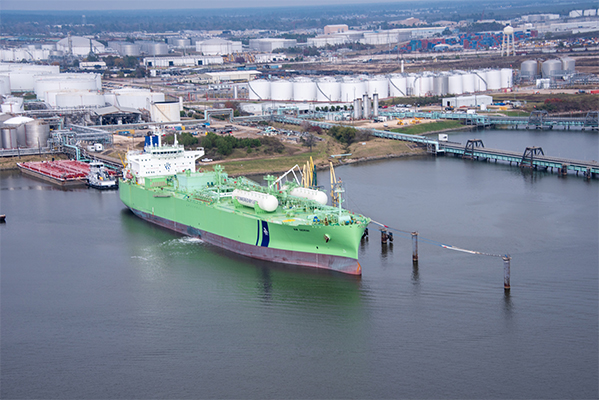Panelists: LPG a good fit for marine vessels big and small
LP gas is fueling marine engines in a variety of sizes and vessels around the world.

BW Gemini’s first voyage on LPG took it to the Enterprise Hydrocarbon Terminal on the Houston Ship Channel. Photo courtesy of BW LPG Pte Ltd.
Those in the marine industry should increasingly consider LPG’s use as a clean-burning solution for their respective applications due to its global availability, simple technology, low installation costs and low emissions, say participants on a World LPG Association (WLPGA) webinar about LPG as a marine fuel.
“As we look to the future and we look toward moving to zero-emissions shipping, we believe that LPG should be the fuel of choice in many applications and in many vessels,” says James Rockall, CEO of WLPGA.
Rockall references LPG’s use in marine applications big or small, including container ships, passenger ferries, fishing fleets, as well as in inboard and outboard engines.
LPG bunkering facilities already exist around the world, Rockall says, and marine vessels can be retrofitted at a modest cost, allowing operators to move away from diesel or heavy fuel oil.
Even very large gas carriers are turning to LPG, as evidenced by BW LPG’s BW Gemini, which took to the seas early this year. The company has committed to retrofitting 15 of its vessels.
“Today, LPG offers immediate carbon-reduction benefits,” says Panos Mitrou, global gas segment manager for Lloyd’s Register Marine & Offshore. “Tomorrow, its composition can be made greener by adding synthetic LPG.”
In the U.S., Onyx Clean Tech Solutions is expanding the marine market through its Propel propane outboards.
“LPG is by far the best mode of energy for marine outboards,” says Jeremy Hahne, vice president of sales and business development at Onyx. “It’s powerful, it’s clean, it’s economical. It just is a simpler solution for commercial and recreational boaters.”
Hahne shared Onyx’s latest success in India, where 4 million fishermen and women operate daily. The LPG engines burn 1 gallon per hour and save operators $10 per day versus gasoline, he says. The company plans to expand to other parts of the world in 2022.
“We have been successful when the LPG company was involved in the discussion with the customer from the outset,” he adds.
















